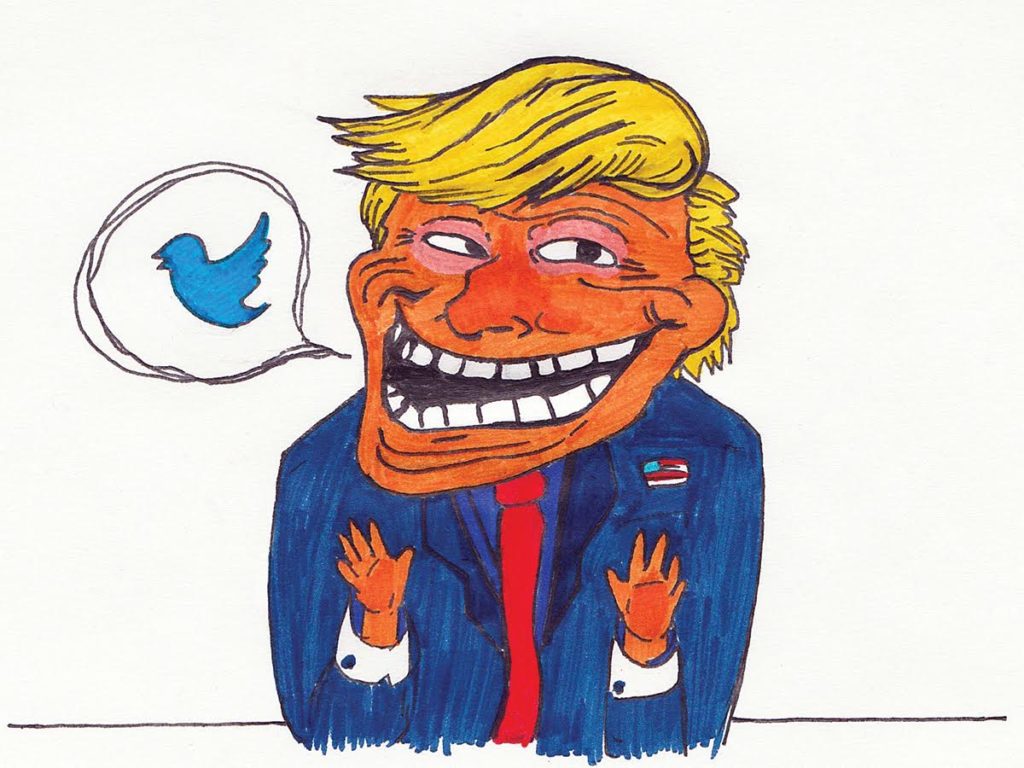
On Wednesday, Feb. 1, hundreds of students assembled at UC Berkeley (UCB) to protest a speaking event planned by the school’s chapter of the College Republicans, which was to feature Milo Yiannopoulos, a major player in the so-called “alt-right” and editor for the right-wing Breitbart News. After these protests ended up degenerating into riots, which resulted in significant property damage (but no physical harm), Berkeley cancelled the event out of concern for Yiannopoulos’ safety. Following these events, President Donald Trump sent a message via Twitter threatening UCB with a withdrawal of federal funds over their perceived intolerance of free speech.
If U.C. Berkeley does not allow free speech and practices violence on innocent people with a different point of view – NO FEDERAL FUNDS?
— Donald J. Trump (@realDonaldTrump) February 2, 2017
Had these protests not devolved into pointless anarchic havoc, the lines would be drawn quite clearly: Both Yiannopoulos and the Berkeley protesters were equally justified in exercising their respective First Amendment rights. However, as soon as protest became rioting, which mandated the deployment of police forces to break up, the protesters’ actions can no longer be justified. Considering that these presumably liberal protesters were trying to show that they were better than a man who is, in every way, an internet troll, the fact that they ended up setting fires and doing miscellaneous other damage is highly undermining to their cause. No matter how despicable a man like Yiannopoulos is, there is no excuse for burning anything down.
Both Yiannopoulos and the Berkeley protesters were equally justified in exercising their respective First Amendment rights.
It is important to emphasize that, up until the time when the protests became violent, the protesters were completely justified in their action. Even if they had (in some nonviolent fashion) disrupted or prevented Yiannopoulos’ speech, such action, when conducted by private citizens, is not an infringement of Yiannopoulos’ right to free speech — the First Amendment only bars the government from restricting free expression. These protests clearly demonstrate the prevailing political attitude on campus, which the school administration should keep in mind for future reference. By the same token, Yiannopoulos had every right to speak on the Berkeley campus, because after all, the students have the right not to listen to his speech.
No matter how inflammatory Yiannopoulos’ views and rhetoric may be, UCB was justified in not cancelling his speech until the point came that they could not guarantee his safety. It is not the place of any university to expel speakers for having unorthodox or unpopular political sentiments, lest they be charged with infringing on people’s right to free speech. Furthermore, the situation would have been much worse had the protesters managed to actually harm Yiannopoulos, so it was better to err on the side of caution and cancel the event. Indeed, the situation gave Yiannopoulos a platform to go through his free speech spiel online anyway.
That said, given how severely polarized this country is, UCB might have been correct to request that the College Republicans postpone the event, especially since that organization absolutely must have known what kind of reputation Yiannopoulos has. Such an act might be unfair to conservatives, but it would also not be the same as actively suppressing such political views on that campus. And regardless of their other responses, with the amount of trouble that arose because of this planned speech, UCB should have been better prepared in terms of security to handle protesters. By increasing their security resources on campus, UCB would be able to allow someone like Yiannopoulos to speak without being too concerned for his safety. That way, protests could be kept at a nonviolent level, and no events would have to be cancelled out of fear of harm toward the people involved.
Trump’s response to what happened at Berkeley is an unfortunate conclusion to the events there. It was extremely inappropriate (and inaccurate) to threaten the entire university with such a severe measure as severing funding, considering that they were not responsible for the protests and did not actually limit free speech. This response was also massively hypocritical, as the president has declared himself to be in a state of “war with the media” — which amounts to an attack on the First Amendment by the president himself. Lastly, one cannot expect to be taken as serious and professional when their official response to a situation comes on Twitter, rather than a more formal medium, such as a press release. If one is supposedly concerned about free speech rights, then a better response might be one that demands better protection for such rights, rather than one that will only antagonize more people.
Violence only degrades the message a protest seeks to disseminate.
The lesson to be learned by students at UCR and on other campuses is not that protests should be cancelled in order to protect university funding, but rather that any future protests must be better planned affairs so that only responsible people, who can be trusted not to turn the event into a riot, are ever involved. Violence only degrades the message a protest seeks to disseminate. In addition, it is important that UCR and its students stand in solidarity with those at Berkeley, because, though trolls like Yiannopoulos have the right to speak on campuses, we do not have to support what they have to say; we must make it clear that we also disagree with people whose views are so widely offensive and intolerant in their own right.
When trying to spread a message against despicable people, such as Yiannopoulos, it is critical that we not stoop to their level in response. Protests are important, and by all means can and should continue, but they must not be allowed to turn violent, which undermines whatever message they have behind them.








